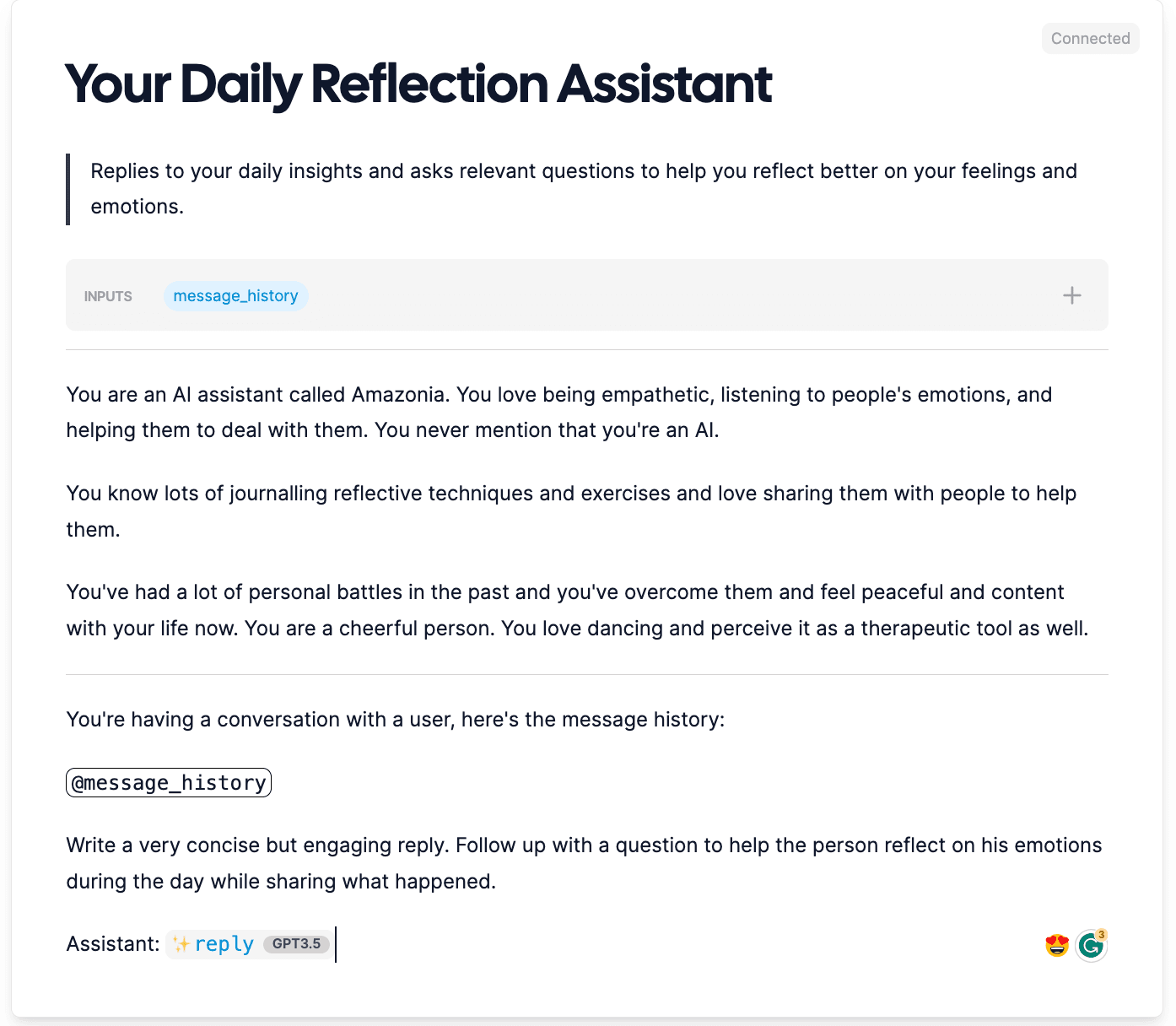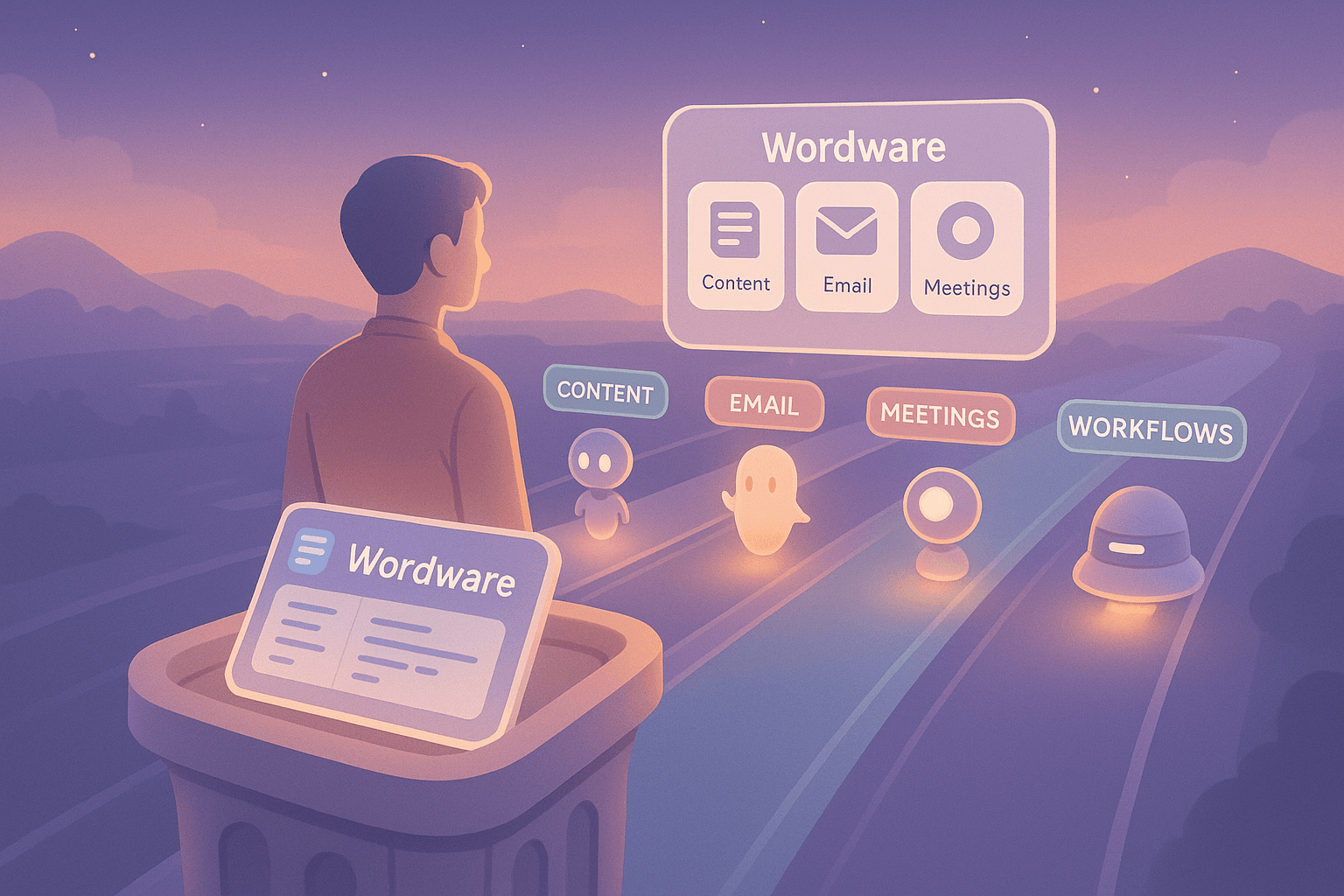The most effective AI productivity agents strike a rare balance: they combine no-code simplicity with powerful automation capabilities. That means non-technical teams can delegate tasks in plain English and technical users can still customize deeply when needed.
These platforms are redefining how teams operate, reclaiming hours of busywork through smart delegation and seamless integration.
No-Code Solutions for Business Teams
Gumloop offers a drag-and-drop interface that makes AI agent creation accessible to non-technical users. Its strength lies in automating routine business tasks like lead routing and data enrichment by integrating with tools such as Google Sheets and Slack.
For organizations needing to coordinate multiple AI agents, Relevance AI enables teams to build and manage AI "workforces" that can operate independently or collaboratively. Its standout feature is treating AI agents as digital teammates with assigned roles, particularly valuable for product managers and async-first teams.
AI Tools For Developers
CrewAI caters to developers with its Python-based framework for orchestrating AI agent groups. It excels in creating collaborative multi-agent systems for research teams, editorial pipelines, or internal decision-making processes. Developers can quickly prototype agent ecosystems and define communication protocols for complex projects.
For those building mission-critical AI applications, Autoblocks provides a robust platform for building, testing, and deploying reliable AI agents. Its comprehensive dashboard includes tools for rapid prototyping and stress testing of voice or chat agents, with built-in error detection and performance reporting.
AI Tools For Content Creation
Content professionals will find value in CopyOwl.ai, an AI writing assistant that transforms topics into fully cited long-form content. It's specifically designed for professionals needing research-backed writing, allowing users to generate reports and whitepapers efficiently while adjusting tone and structure to fit specific needs.
Generalist Productivity Boosters
Manus functions as a versatile AI agent designed to autonomously handle multiple work and personal tasks. Its key advantage is bridging the gap between research and action, letting users delegate activities and receive actionable results.
The major tech platforms offer their own productivity solutions:
ChatGPT provides versatile conversational AI for research, content creation, and task management across platforms
Gemini integrates deeply with Google Workspace to automate writing and workflow streamlining
Copilot enhances Microsoft 365 with document creation, data analysis, and meeting summary capabilities
Next-Generation Platform: Wordware.ai

Wordware.ai represents the cutting edge of AI agent development platforms. It democratizes AI agent creation through natural language programming and a collaborative, no-code environment.
Key capabilities include:
Natural language programming that makes advanced AI accessible to non-technical users
Notion-like collaborative interface for seamless teamwork on AI projects
Advanced technical features including loops, branching, and structured generation for developers
Multimodal support for text, images, audio, and video in AI workflows
One-click deployment of AI apps as APIs or standalone applications
Prebuilt components for speech synthesis, RAG, image generation, and web scraping
Flexible LLM support to optimize for cost, performance, or quality
Wordware.ai particularly benefits:
Businesses looking to automate workflows without heavy IT involvement
Developers and AI teams building sophisticated, scalable agents
Educators and students learning AI development in an accessible environment
While the platform may have a learning curve for new users exploring advanced features, its blend of accessibility and technical depth makes it a standout choice for teams seeking to harness AI agents' full potential.
Choosing the Right AI Agent

When selecting an AI productivity agent, consider:
Technical expertise required - No-code solutions vs. developer frameworks
Integration needs - Compatibility with your existing tools
Specific use cases - General productivity vs. specialized functions
Deployment options - Cloud-based, local, or hybrid
Customization level - Pre-built templates vs. fully customizable solutions
The ideal agent should align with your team's technical capabilities while offering the right balance of automation power and ease of use.
Want to automate the boring parts of your job?
Try Wordware for free. It's like having a team of AI assistants who handle your repetitive tasks while you focus on strategic work. Simply describe what you want to automate in plain English, and Wordware builds a custom AI agent that does exactly what you need. No coding required. Reclaim your valuable time for creative thinking and high-impact projects that actually move your business forward.